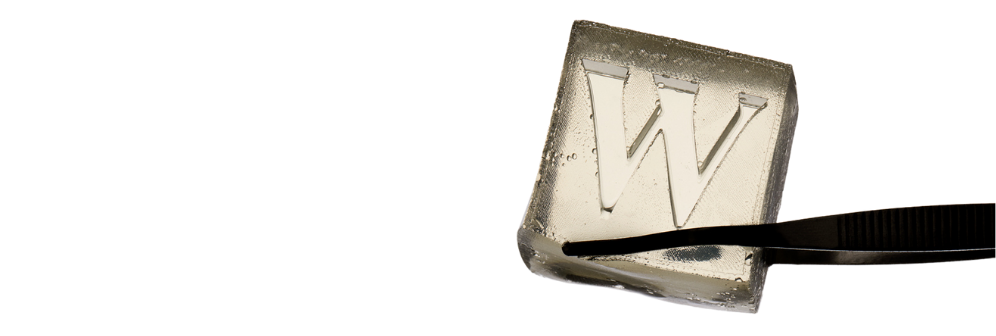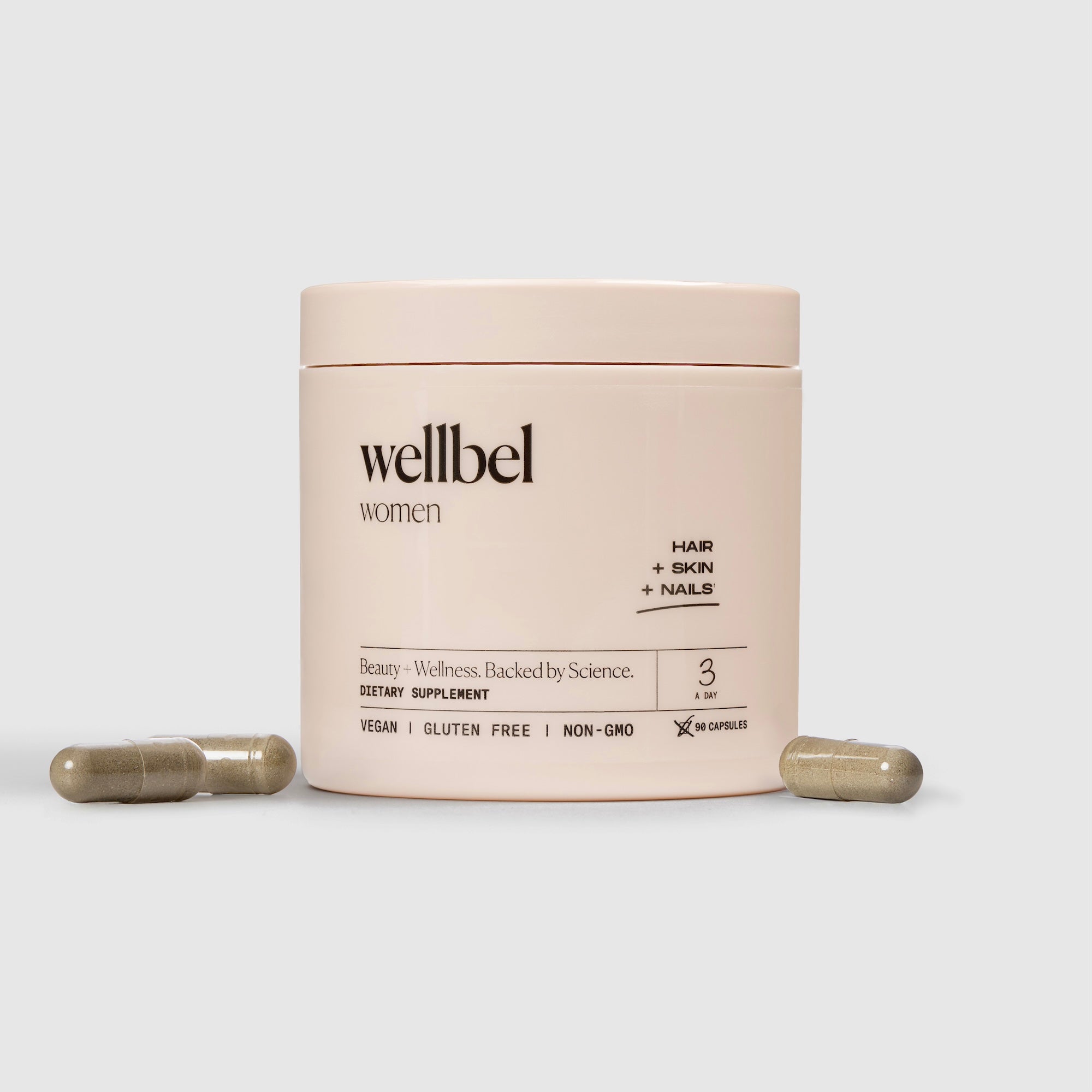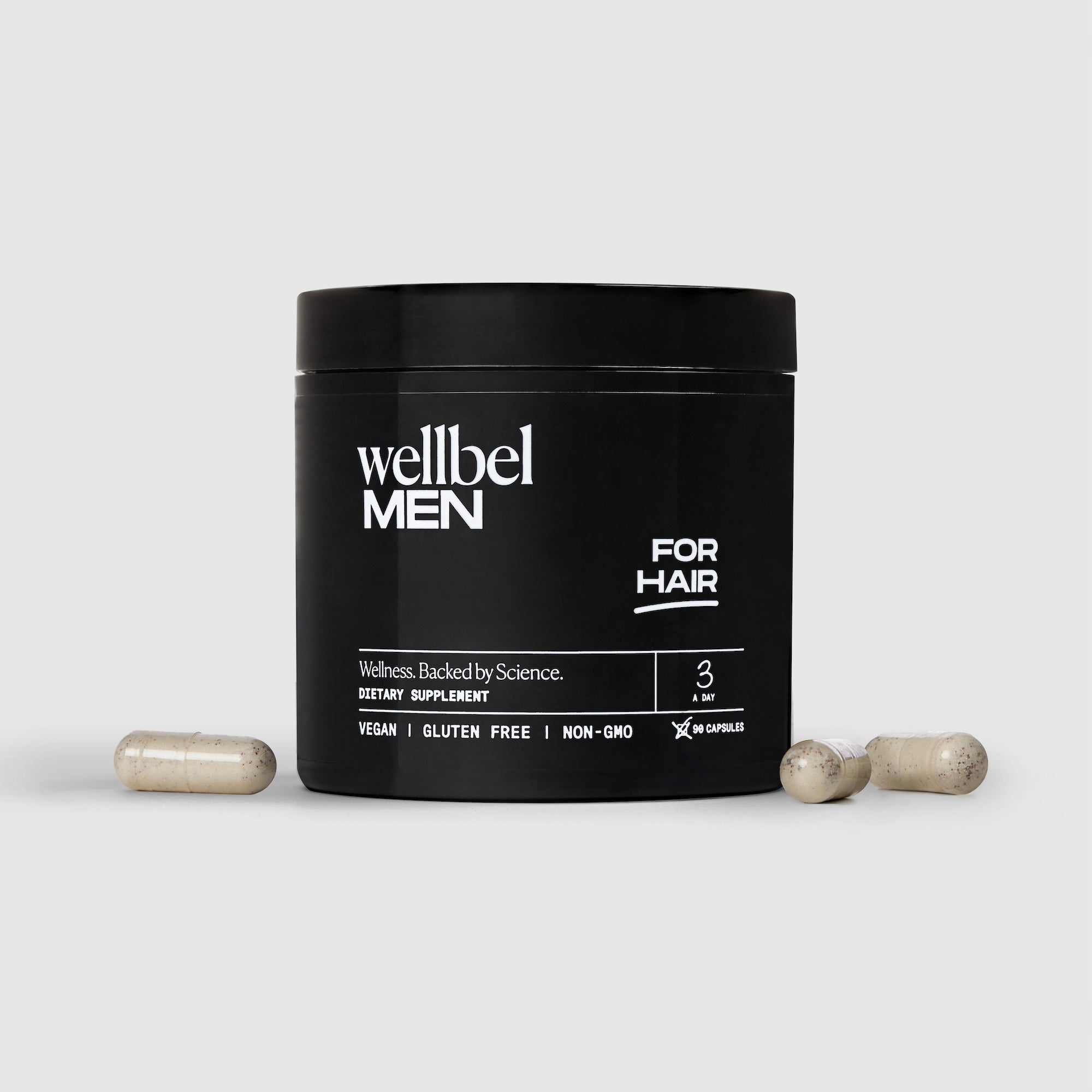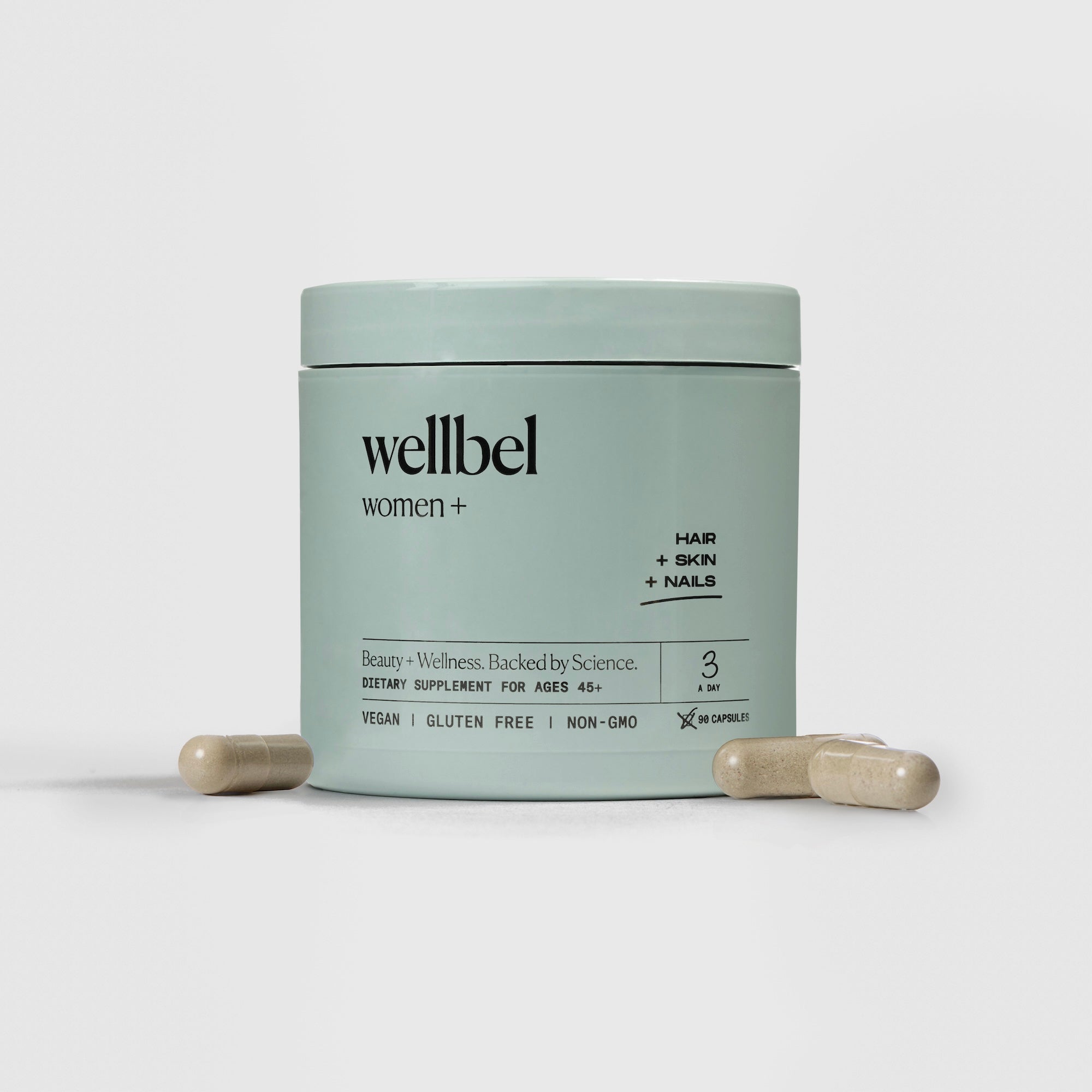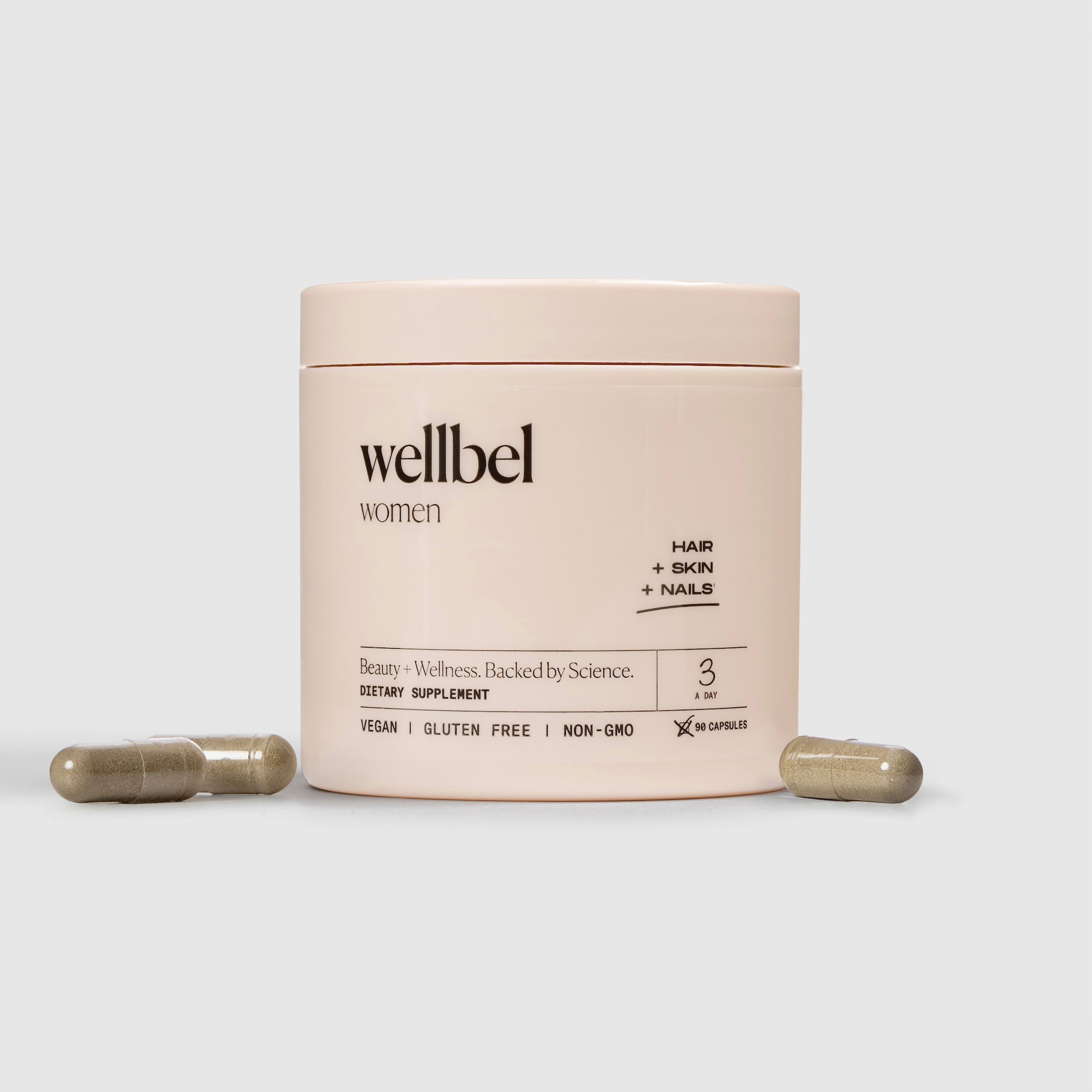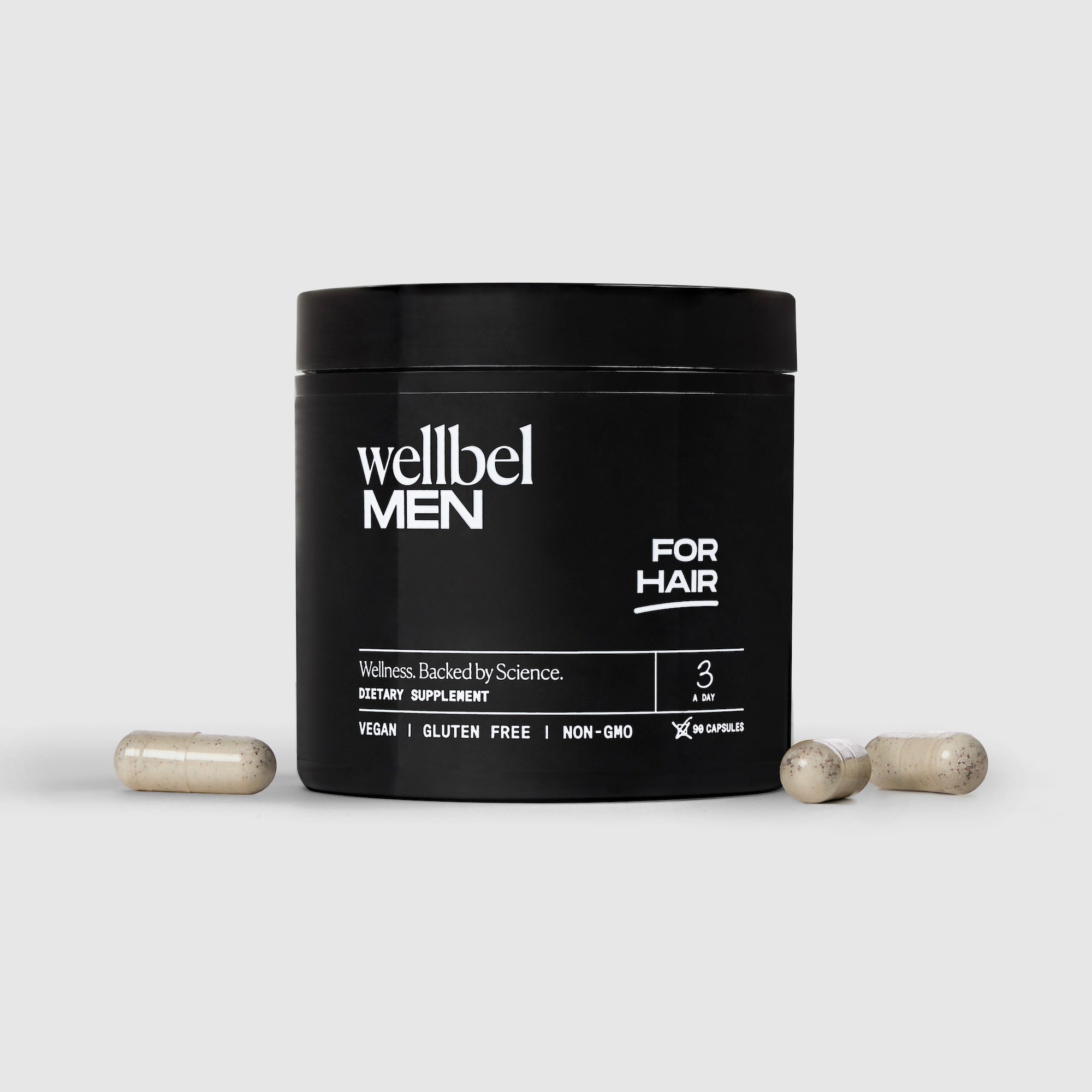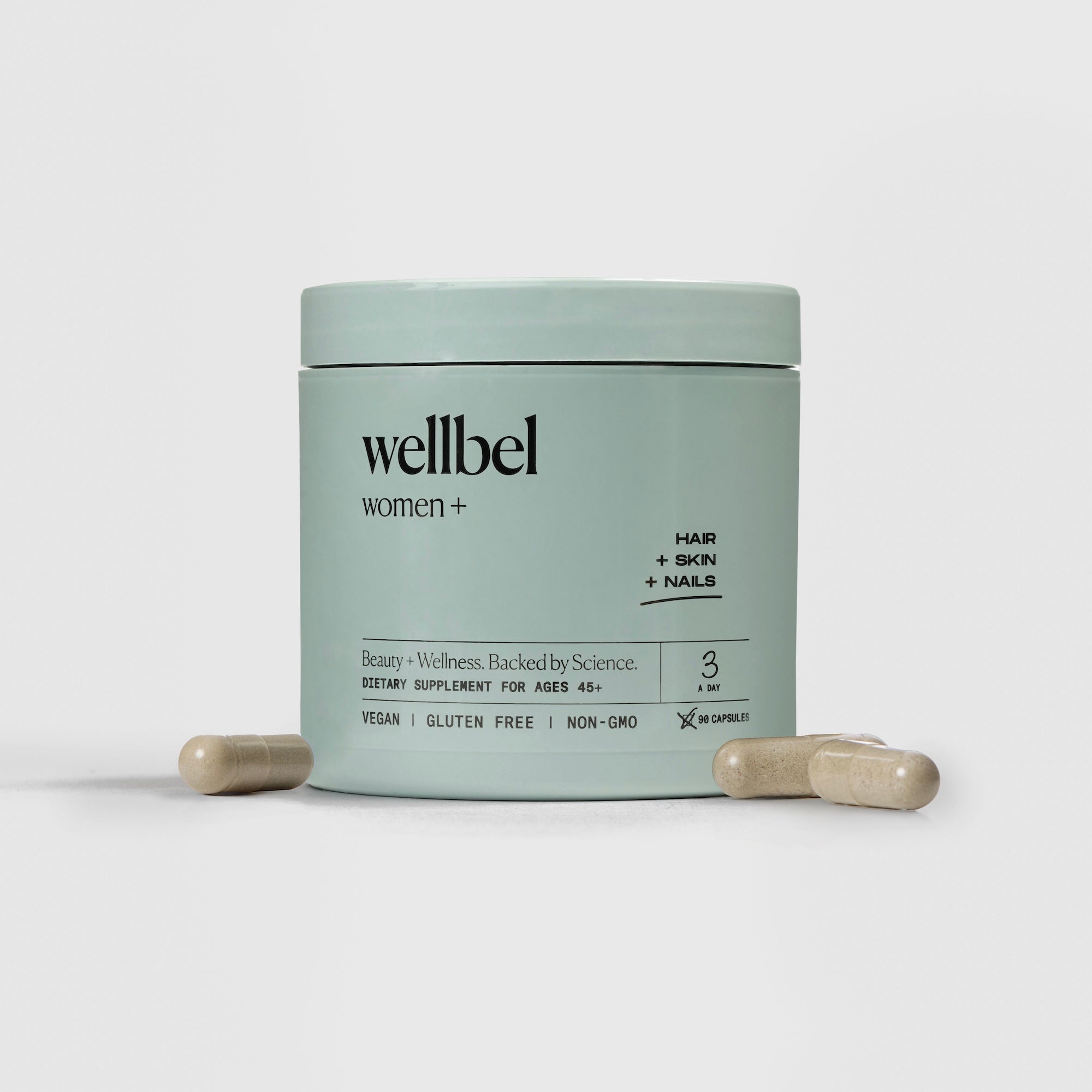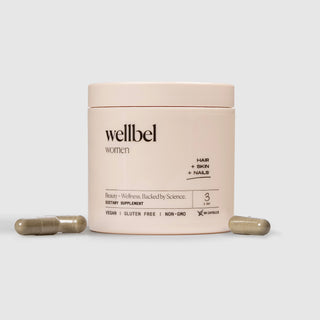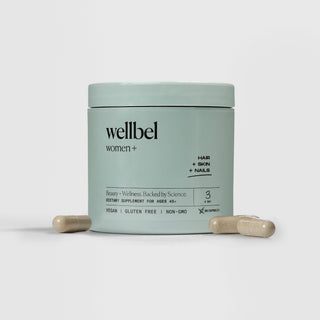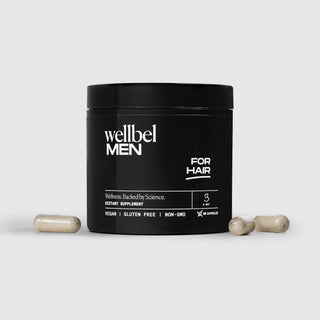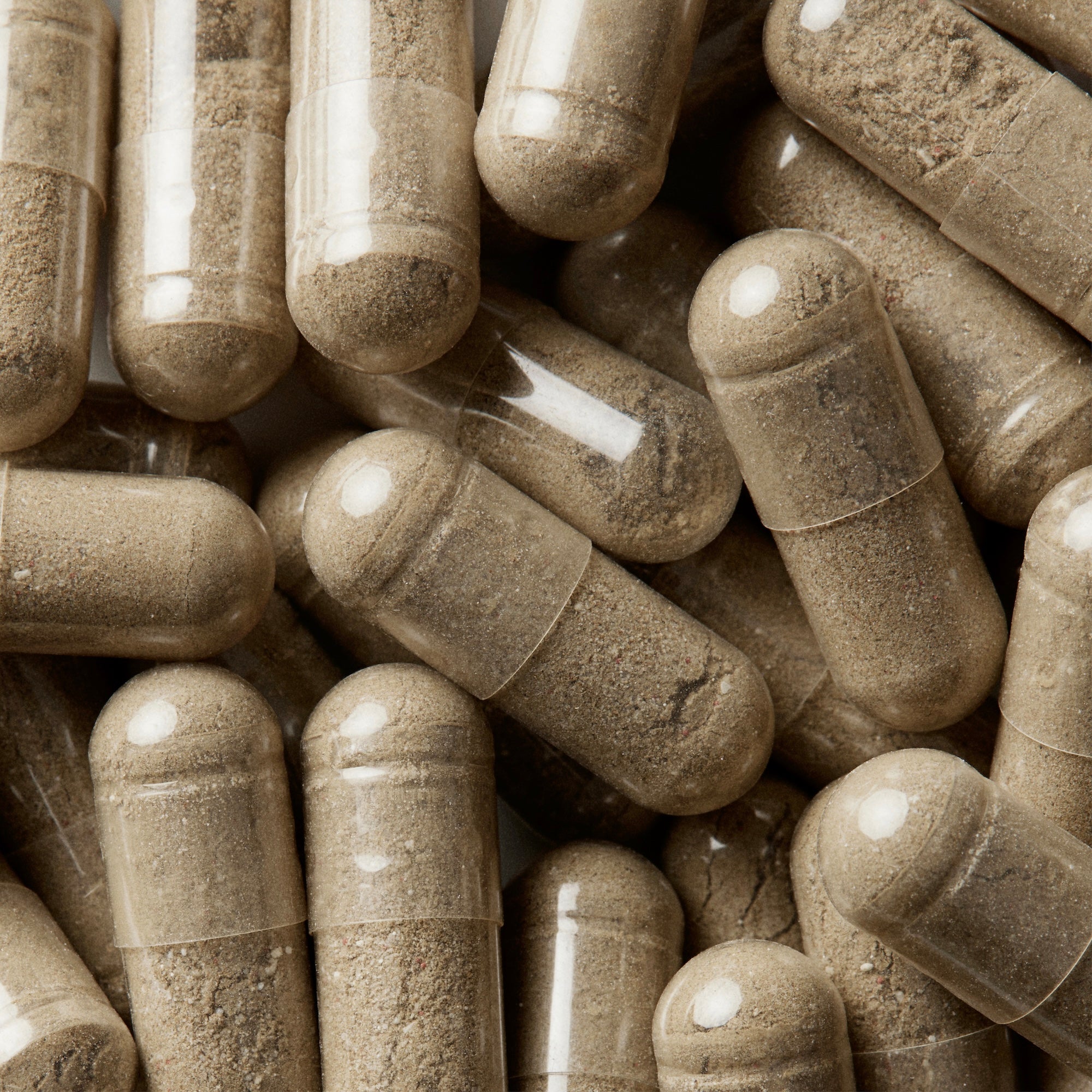When it comes to your health and wellness, there’s something to be said about the fundamentals. Lessons we learned in kindergarten, like to eat your fruits and vegetables, have ultimately stood the test of time.
As an adult, we’re sure you’ve come around on the value of whole foods. But have you ever stopped to consider what it is that makes them so beneficial? While we’re at it, what actually is a vitamin? In this post, we’ll break down the basics of what good nutrition can do, specifically when it comes to hair growth, and what can happen when your body is not sufficiently nourished.
What Do Vitamins Have to Do with Hair Health?
So let’s start with the connection between vitamins and hair health. Vitamins and minerals are organic compounds that play an important role in just about everything the body does. From digestion, to fending off illnesses, to yes, hair growth, the body needs vitamins to function at its best. Here’s how vitamins specifically target hair health.
Keratin and Collagen
Vitamins play an essential role in promoting healthy hair growth by aiding in the production of both keratin and collagen. You’ve probably heard of these two proteins before. They’re pretty famous. Keratin is the main structural component of hair, while collagen helps to support the hair follicles and the surrounding tissue.
These vitamins help to nourish the hair follicles and promote healthy blood flow to the scalp, which is vitally important for maintaining the hair growth cycle. Vitamins are necessary for the production of amino acids, which are the building blocks of keratin and collagen. So more vitamins, more keratin and collagen.
Fighting Inflammation
Inflammation is a natural response to injury or infection, but when it becomes chronic, it can contribute to a range of health issues, including hair loss. Inflammation is like the boogey man of the body. Where it goes, problems follow.
Vitamins like vitamin A, C, D, and E, as well as B vitamins, have anti-inflammatory properties that can help to reduce inflammation in the body. By supporting the immune system and reducing inflammation, these vitamins can also help to support healthy hair growth and fight hair loss.
Cell Regeneration
We often don’t think about hair similarly to the way we think about, say, our organs or even our skin. But hair is just as reactive to our wellness as any other parts of our bodies. Hair cells, like other cells in the body, rely on healthy cell growth and division to maintain their structure and function.
Vitamins like vitamin A, C, and E are known to support healthy skin and hair by promoting cell growth and regeneration. In particular, vitamin A helps to stimulate the production of new skin cells and promote hair follicle growth, while vitamin C is necessary for the production of collagen, a protein that supports healthy skin and hair. Additionally, vitamins like vitamin B12 and folic acid are important for the production of red blood cells, which transport oxygen and nutrients to the scalp and hair follicles.
In other words? It’s all connected.
Which Vitamin Deficiencies Have Been Tied to Hair Loss?
Now that you understand how vitamins and hair health are connected, we can start to answer the question, which vitamin deficiency causes hair loss?
Folate
Let’s start with folate. Folate, also known as vitamin B9, is an essential nutrient that plays a crucial role in cell growth and division. It is particularly important for rapidly dividing cells, like the ones found in hair follicles.
A deficiency in folate can lead to a range of health issues, including hair loss and stunted hair growth, not to mention that hair may become weaker and more prone to breakage. A folate deficiency can even impact the production of red blood cells. Without sufficient oxygen and nutrients, hair follicles can become weak over time, further contributing to hair loss. When it comes to healthy hair growth, sufficient folate is absolutely a must.
Biotin
Biotin is often talked about when it comes to hair loss. It’s long been advertised as a hair loss vitamin — for better or for worse. But what’s the science behind this vitamin and hair loss? Biotin, also known as vitamin B7, is necessary for the production of keratin.
A biotin deficiency has been tied to hair loss, which is why so many companies tout biotin supplements to regulate hair growth. That said, many of these supplements contain too much vitamin B7, which can lead to other issues. More on that later.
Zinc
Now it’s time to talk minerals, starting with zinc. Zinc is necessary for the production of new hair cells, and a deficiency can disrupt the hair growth cycle, ultimately leading to thinning hair and hair loss.
Zinc is also important for maintaining the structural integrity of hair, and a deficiency can cause brittle hair. Before you get nervous, know this: it’s uncommon for people in developed countries to experience severe zinc deficiency, though some people may not get enough zinc through their diet or have difficulty absorbing zinc due to certain medical conditions.
Selenium
Selenium is a lesser known mineral but it’s a big one when it comes to hair loss. Selenium helps out with the production of selenoproteins — key in maintaining the structural integrity of hair and supporting healthy hair growth.
At the same time, selenium is important for the regulation of the immune system, and a deficiency can lead to inflammation, and as we mentioned before, inflammation can lead to hair loss. From fighting oxidative stress to supporting hormone health, selenium plays such a big role in healthy hair growth. On the flip side, a selenium deficiency can stunt hair growth and strength.
Iron
Lastly, we’ll touch on a mineral you’ve likely read about before. Iron deficiency armenia is a common cause of hair loss. When the body does not get enough iron, it can't produce enough hemoglobin, a protein found in red blood cells that carries oxygen to the body's tissues, including hair follicles.
Without sufficient oxygen, healthy hair follicles become unhealthy ones, leading, yes, to weaker hair, hair thinning, and eventual hair loss. It’s why people who deal with hair loss often take an iron supplement. You can read more about iron and hair growth here.
One thing we’ll note is that this list isn’t exhaustive. Nutritional deficiencies in vitamin D, vitamin C, vitamin E have all been linked to hair loss.
How Can You Improve Your Nutrition?
So now that we can see how vitamin deficiency and hair loss are connected, what can we do about it? The good news is that a lot of nutritional deficiency issues can be solved by eating a more balanced, healthy diet.
If you need another reason to eat more whole, organic foods, consider that they’re an effective hair loss treatment.
Ensuring Nutritional Strength
But making sure that you’re getting enough vitamins and minerals every day through your diet is easier said than done. That’s why we recommend taking a supplement like Wellbel, which is specifically formulated to deliver your body the vitamins and minerals which help target hair loss and support stronger, happier hair.
If you’re dealing with hair loss and been on a stroll through the supplement aisle at the drugstore, you might have felt a little overwhelmed. Supplements are largely unregulated, which is why you often see jars on the shelves that include capsules far exceeding daily recommended limits — especially for vitamins like biotin.
Wellbel is committed to solving that problem, with a balanced, safe formula that helps you reach your daily intake goals, without worrying about taking too much. Try it out and let us know how it helps you achieve your hair dreams!
Sources:
What are vitamins, and how do they work? | Medical News Today
The Role of Vitamins and Minerals in Hair Loss: A Review | National Library of Medicine
